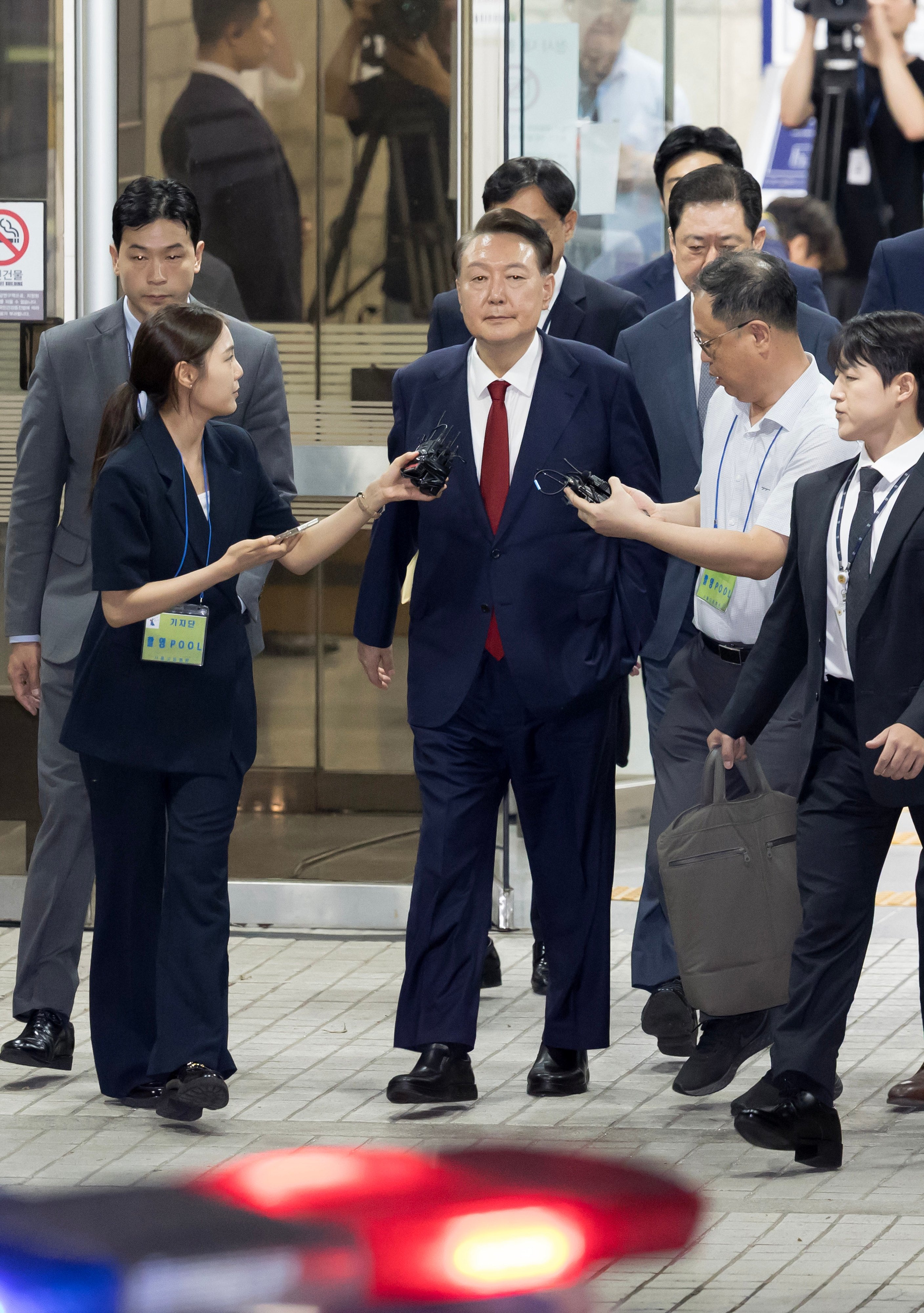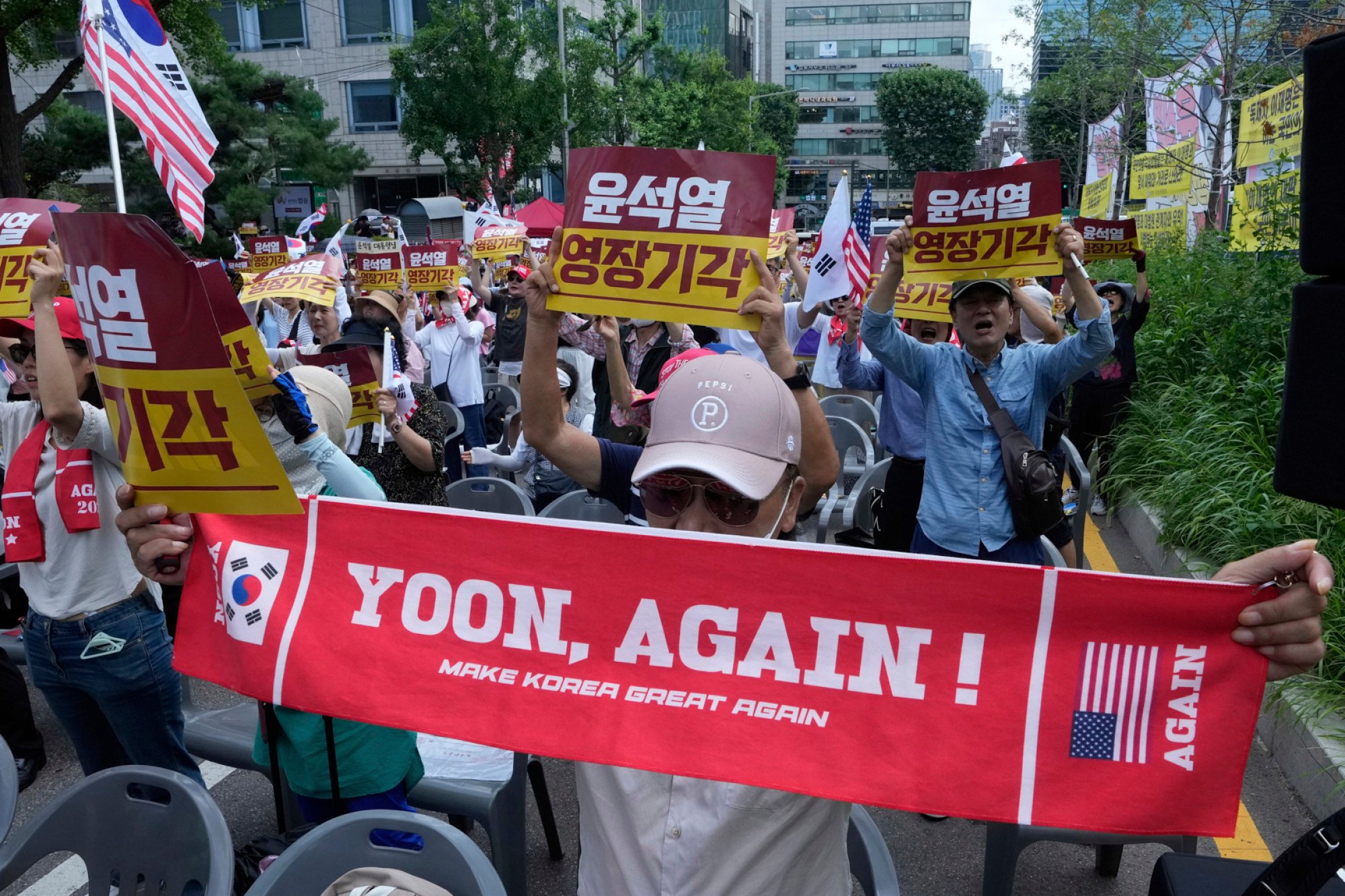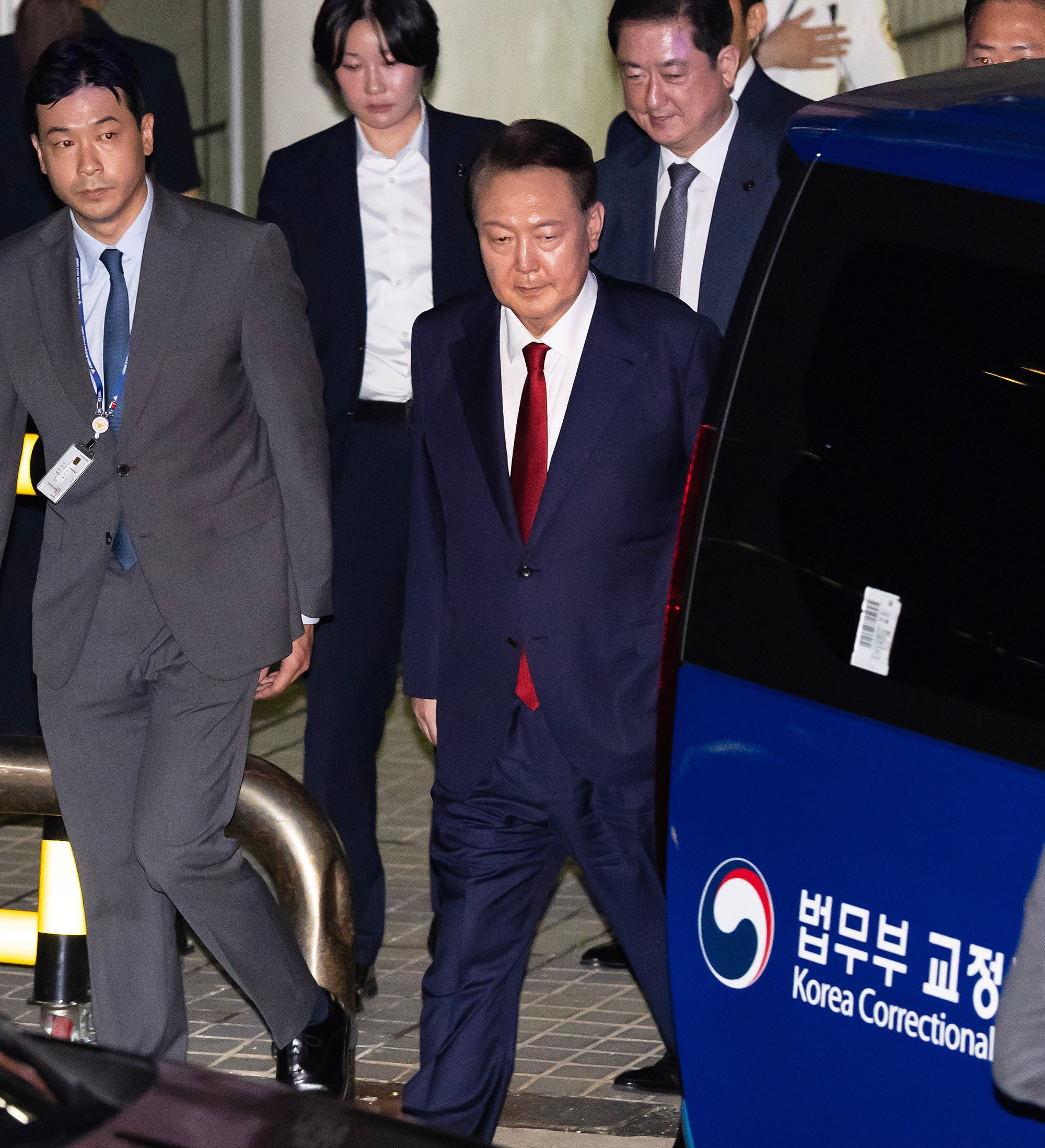Above the law? Ex-president’s refusal to face prosecution alarms South Korea
In a cell he refuses to leave, Yoon Suk-yeol sits mired in a scandal of vendettas, military secrets and power that defies accountability

Once South Korea’s chief prosecutor and president, now its most high-profile prisoner, Yoon Suk-yeol has refused for days to leave his cell for questioning, as the investigation deepens into his martial law plot and alleged drone provocations of Pyongyang.
Since his rearrest on Thursday last week, Yoon has repeatedly declined to comply with a summons from special prosecutors, citing chronic health issues, including diabetes.
Three separate attempts have been made this week to transfer him to the Seoul High Prosecutors’ Office. Each time, Yoon has refused to cooperate.
Prison authorities say that, due to his status as a former president, they cannot use force to remove him from his cell.

Yoon’s behaviour is undermining public trust in the rule of law, according to Assistant Special Prosecutor Park Ji-young.
“This is a former president who once led the nation’s top prosecutorial office. More than anyone, he should be upholding the justice system, not defying it,” Park told reporters on Tuesday.
“His refusal to face questioning sends a troubling message to the public.”
Yoon’s legal team has condemned prosecutors’ efforts to compel his appearance, calling it “a public shaming tactic” designed to parade the former head of state before television cameras in handcuffs.
“There is no reason prosecutors cannot question him inside the prison,” one of his lawyers said, dismissing the prosecutors’ push as “political theatre”.
It’s a bitter irony … The man who once championed the rule of law as prosecutor general is now refusing to abide by itLee Jun-han, political scientist
Since Yoon’s rearrest, he has refused to attend a court hearing at the Seoul Central District Court, where he faces being formally charged with attempting to stage an insurrection via an illegitimate martial law order on December 3.
Before his rearrest, he had attended a number of court sessions on the insurrection charges that have convened three or four times a month since April, following an initial period of procedural delays.
Unhandled type: inline-plus-widget {“type”:”inline-plus-widget”}
Yoon’s legal odyssey began with his first arrest on January 15, after a tense stand-off at his private residence. The attempt was initially thwarted by his armed presidential security agents, who blocked investigators from entering.
The impeached ex-president was initially released from detention on March 8, after a judicial panel ruled his confinement was unlawful – a decision that triggered widespread public outrage. He was detained again 124 days later after a court approved a fresh arrest warrant, citing concerns he might destroy evidence.

Prosecutors’ 66-page warrant alleges that Yoon obstructed justice by instructing his security detail to bar investigators from his property. When the original warrant was issued by the Seoul Western District Court in January, Yoon’s supporters stormed the court and vandalised the building. Prosecutors now seek prison sentences of up to five years for 49 people accused of being involved in the incident.
“It’s a bitter irony,” Professor Lee Jun-han, a political scientist at Incheon National University, told This Week in Asia. “The man who once championed the rule of law as prosecutor general is now refusing to abide by it. His conduct is deepening public resentment towards him.”
Yoon had yet to grasp the seriousness of his predicament, said Choi Jin, director of the Institute for Presidential Leadership think tank.
“He is facing a possible life sentence, yet he still appears to believe he can evade accountability through delay tactics,” Choi said. “Rather than admit wrongdoing, he’s choosing to stall the process and hide from public scrutiny – even as anger continues to build.”
Among the most serious of the latest allegations are claims that Yoon ordered military drones to penetrate North Korean airspace – including over the residence of supreme leader Kim Jong-un – in an attempt to provoke retaliation and justify emergency powers.
On Monday, Kim Byung-joo, a senior lawmaker from President Lee Jae-myung’s ruling Democratic Party of Korea, revealed that South Korea’s Drone Operations Command had carried out at least three missions into North Korea last year, involving seven unmanned aerial vehicles.
The retired four-star general told a party meeting that two drones were launched on October 3 from Baengnyeong Island, in the northwest, at 10-minute intervals starting at 2am. They reportedly returned four hours later after flying over Pyongyang.
“Their target coordinates were near Residence No 15, widely believed to be Kim Jong-un’s main home,” he said, citing multiple military whistle-blowers.
Yoon’s legal team has denied any knowledge of the drone missions, focusing instead on North Korean provocations such as launching balloons filled with rubbish across the border.
But according to Kim Byung-ki, the Democratic Party’s floor leader, the country had been teetering on the edge of all-out conflict.
“War was closer than we realised,” he said.